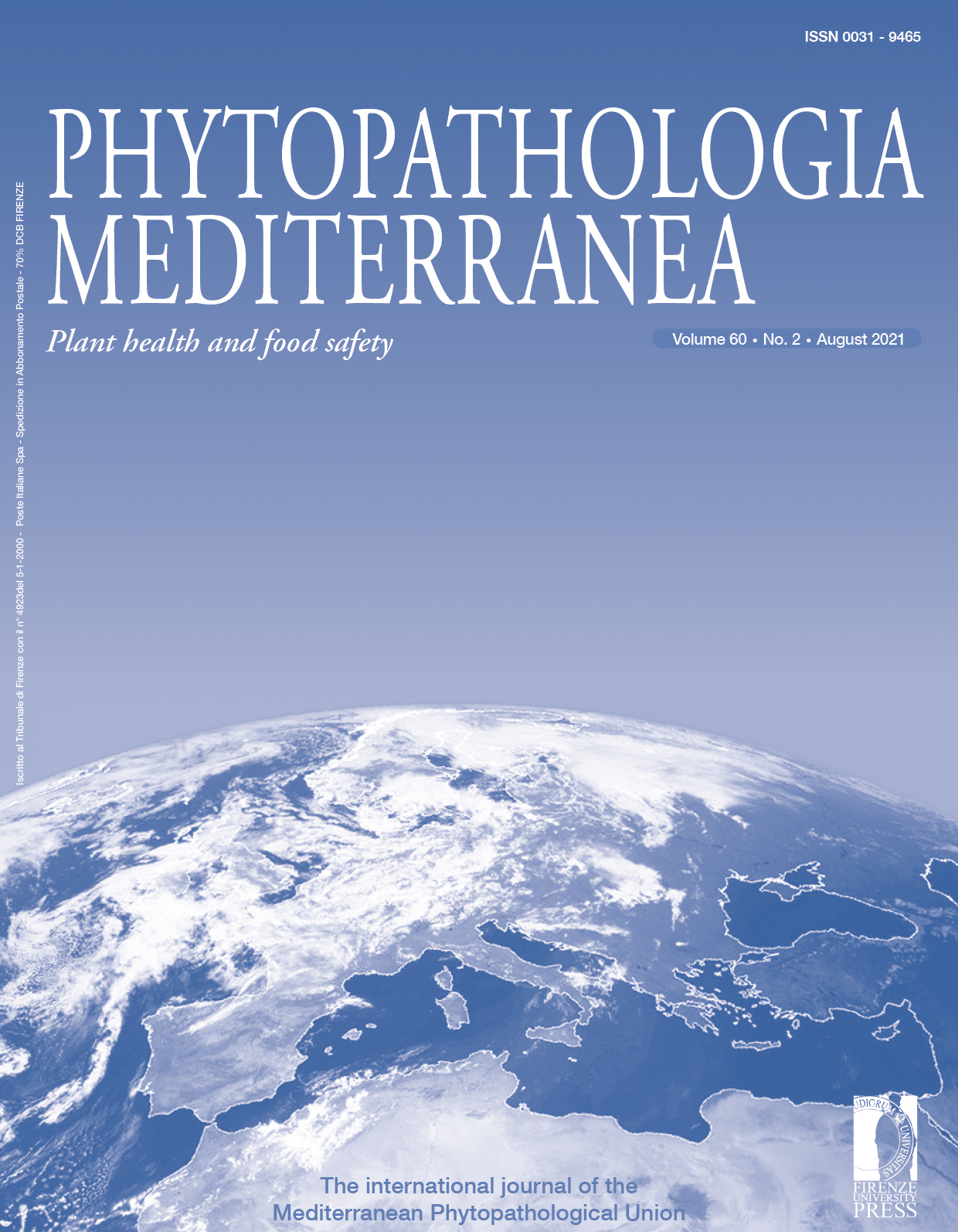Published 2021-09-13
Keywords
- Biocontrol agents,
- Pseudomonas syringae pv. actinidiae,
- in vitro assays,
- antagonist survival,
- population challenge
How to Cite
Abstract
Pseudomonas syringae pv. actinidiae is an important pathogen of kiwifruit (Actinidia deliciosa), and bacterial canker of this host is managed by monitoring and chemical control strategies. The efficacy of the bio-pesticides Amylo-X® (based on Bacillus amyloliquefaciens subsp. plantarum strain D747) and Serenade Max® (strain QST713 of B. subtilis) was evaluated by in vitro and in vivo experiments. Both antagonists inhibited different biovars of the pathogen in in vitro assays; QST713 was more efficient than D747. The two Bacillus strains also colonized A. deliciosa flowers (c. 105-7 cfu per flower) up to 96 h after inoculation. D747 persisted on leaves (c. 104-6 cfu cm-2) up to 4 weeks after inoculation, during 2 years in Emilia Romagna and Latium regions of Italy. On flowers, the antagonists reduced pathogen populations, compared to untreated (control) flowers. On A. deliciosa and A. chinensis plants under controlled conditions, Amylo-X® reduced severity of bacterial canker, providing ca. 50% relative protection on A. deliciosa and 70% on A. chinensis. Serenade Max® was less effective, giving 0% relative protection on A. deliciosa and 40% on A. chinensis. In a field trial, on A. deliciosa plants, Amylo-X® reduced the severity of bacterial canker on leaves, providing ca. 40% relative protection. The sensitivity of both antagonistic strains to streptomycin sulphate was confirmed by testing the most used concentration where antibiotics are approved for management of bacterial pathogens.






